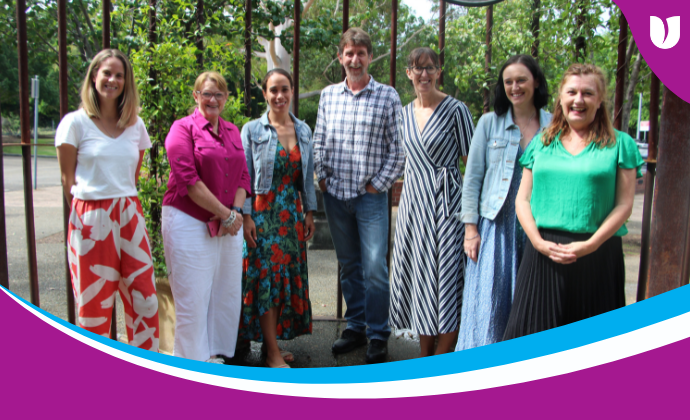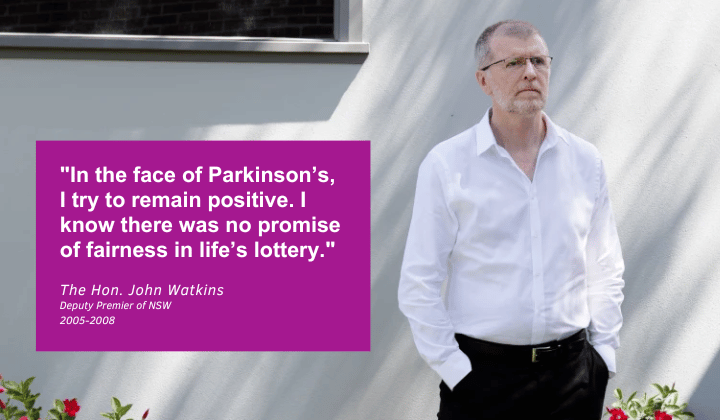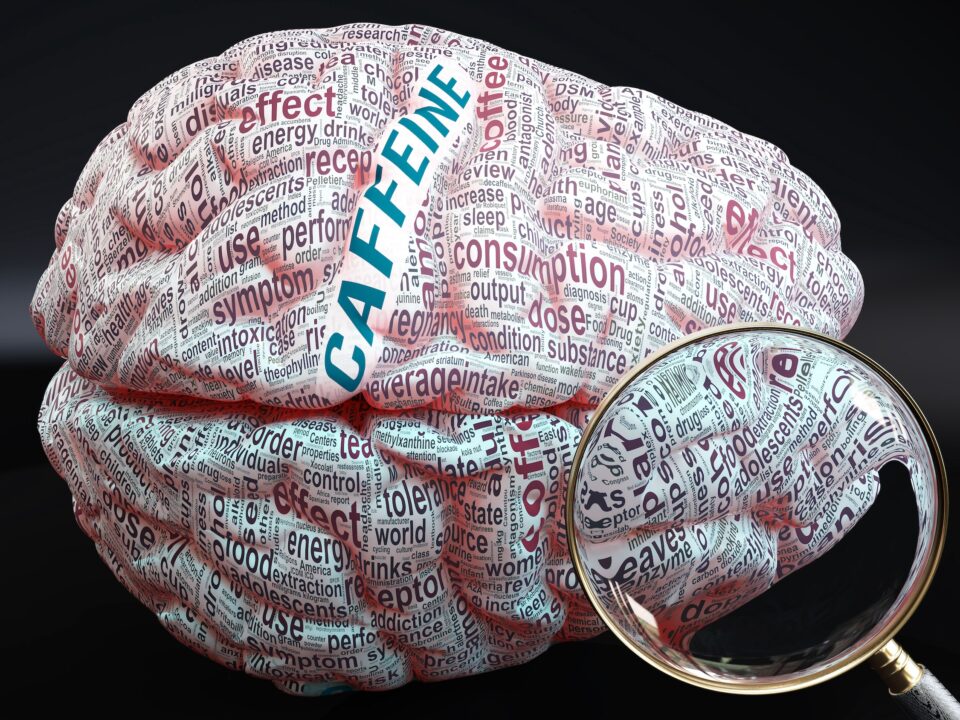International Nurses Day

Partnering through Parkinson’s – Carol and Alan
9th May 2023
WPC 2023 Research Poster
23rd May 2023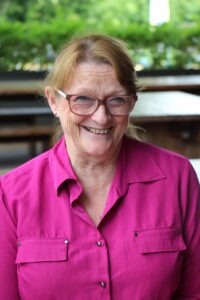
Cathy Melton
Parkinson’s Specialist Nurse – HealthLine
“The most challenging thing about being a Parkinson’s Nurse is the general lack of knowledge around the condition. The lack of understanding of the impact which Parkinson’s has on peoples’ lives can be overwhelming.
“I constantly hear stories about how people living with Parkinson’s are dismissed and not taken seriously – particularly about their fluctuating abilities hour to hour. This level of lack of understanding goes from care workers, GPs all the way to the Emergency Department and hospital.”
“I find it rewarding when I can provide information about Parkinson’s and can empathise with people affected by the condition. There are ‘light bulb’ moments for people when they understand why and how the Parkinson’s is impacting on them and their family members.”
“I would love to improve everyone’s knowledge about Parkinson’s – especially GPs. If there is more understanding of the widespread impact of the condition then there will be more money provided for education, services, support, and research which can then improve quality of life for all.
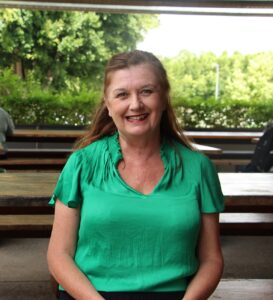
Rachael Mackinnon
Parkinson’s Specialist Nurse – Clinical Lead
“The most challenging thing I find about being a Parkinson’s nurse is the ongoing lack of clinical and community awareness of the prevalence and nature of the disease.
“Despite regular education and advocacy drives, increasing awareness generally is an ongoing challenge. Even more so when we try to describe the value of oral medications and even of the device-assisted therapies – which are not for curing folks but restoring and maintaining their quality of life, which is so difficult to measure tangibly.
“I find it challenging that it is difficult to get country folks linked up with Movement Disorder specialists and the general lack of resources in the regional and rural areas, also in metropolitan areas.
“There is always an ongoing learning curve about Parkinson’s – things are never the same. I find being a Parkinsons’ nurse also very rewarding in taking a very extensive patient history and assessments and offering strategies to help manage the symptoms of Parkinson’s
“I love listening and engaging with people and their significant others about their version of this disease – particularly around the non-motor symptoms – and how much I learn about this very complicated and multifactorial neurodegenerative disease. Often, I learn so much from them and really have a sense of being in it together .
“I know that the people with Parkinsons’ and their family’s also appreciate our good understanding too and how this contributes to great rapport and trust. I know how amazing it has been to do nursing consults aboard a yacht; in a milking shed or a coffee shop, or the privilege of being in someone’s home too.”
“Community awareness of the disease and ensuring inclusiveness so that people don’t feel isolated and alone. Appropriate funding for nursing and allied health services as per the literature, so access is equitable and affordable.
“I would also love to invent an easy device for monitoring dopamine levels – like a glucose monitoring system so people know when to top up on medication themselves. Also a drug that can keep on producing adequate levels of dopamine despite the disease progression. Of course if I had a Parkinson’s disease wand, I would conjure up a cure!”
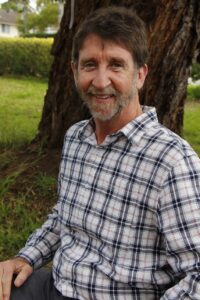
Vincent Carroll
Parkinson’s Specialist Nurse – Mid North Coast Local Health District
“Working in a rural and regional area you need to innovative and creative as we don’t have specialist neurologists working in our hospitals.
“On the Mid North Coast we have done a massive amount of work raising awareness of Parkinson’s disease, reviewing the care at the hospitals across the region to improve the journey for people with Parkinson’s when they are admitted. This work has resulted in reduced length of stay and improved satisfaction.”
“I have a great job. I am really well supported by my local manager, the CE and team at Parkinson’s NSW, as well as the Parkinson’s community. We have introduced many innovations and new services over the last 8 years which have made a difference.
“Some of these include:
- Clinical Guideline for the care and management of people with Parkinson’s admitted to hospitals on the Mid North Coast
- Nursing research providing evidence the Parkinson’s specialist nurse are improving the quality of life and reducing length of stay in hospital
- The commencement of the Movement Disorders Service on 28 April 2023 after six years of planning. This service closes the gap on services delivered in rural and regional areas as 93 percent of specialist services are in metropolitan areas. The service is a partnership between Mid North Coast Local Health District, Western Sydney Local Health District Movement Disorders Unit and Parkinson’s NSW.
“The clinical director of the service will be Associate Professor Dr Victor Fung, Director of the Movement Disorders Unit and Head of the Neurology Department at Westmead Hospital.”
“I would like to continue research in the Parkinson’s space and translating the research into practice.
“We also need to see more nurses and movement disorder services introduced in rural and regional areas across NSW to support people living with movement disorders, plus a succession plan for Parkinson’s Specialist Nurses.”
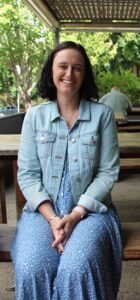
Lauren Hogan
Parkinson’s Specialist Nurse – Southern NSW Local Health District
“Being new to this role, the challenge for me has been to ensure I had an excellent knowledge base before I started the service. That way, my patients would benefit from this expertise from the get-go.
“Being in a regional area, and not having any access to a Movement Disorder Specialist other than via telehealth, phone or email is certainly challenging. However, I have found ways we can make this work well for my patients – which is the real reason we exist! To ensure quality, specialist care for people living with Parkinson’s in regional areas.”
“I love the interaction with my patients, and the privilege of getting to know everyone’s story. It gives me a great sense of job satisfaction when we can make small changes to a person’s life, that in turn make a huge impact in their day-to-day life.
“I am always learning in this role, and constantly responding to the ever-changing and unique environment that we are in. Parkinson’s is so unique to each individual, it is like solving a puzzle each time I assess someone new – finding what can we tweak or change to make life that little bit easier for them.”
“I won’t get ahead of myself, but one day I would love to be able to have a regular clinic in Goulburn with a Movement Disorder Specialist say, once a month to service our local patients.
“This would alleviate so much burden that travelling over two hours to Sydney brings and ensure that patients are getting the specialist care they so desperately need – and of course deserve.
“Another goal would be to bring more support to people with advanced therapies in our local area.”

